19+ Professional Questionnaire Samples
Below is a collection of questionnaire samples used in the fields of business, healthcare, and academics.
-
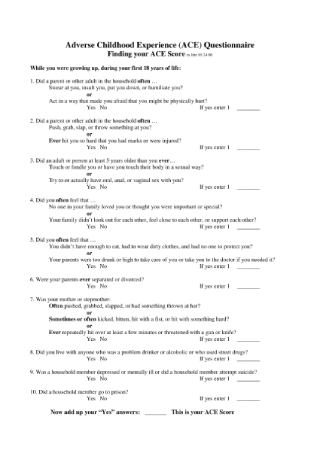
Adverse Childhood Experience (ACE) Questionnaire
Identify childhood experiences of abuse and neglect with the use of a questionnaire.
-
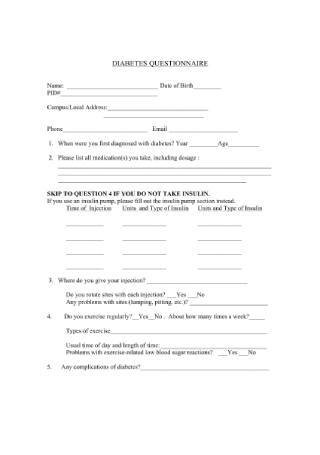
Diabetes Questionnaire
Learn more about the disease and how it affects the lives of patients using a questionnaire.
-
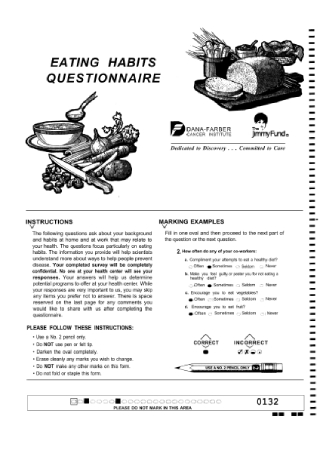
Eating Habits Questionnaire
Study the eating habits of a particular population with the help of a questionnaire.
-
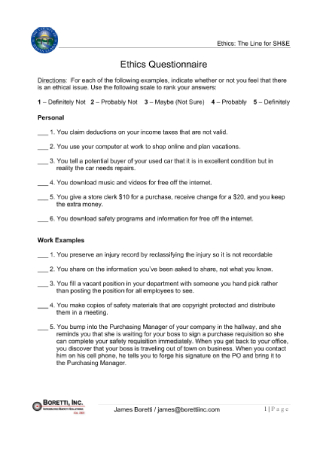
Ethics Questionnaire
Download this questionnaire to conduct a test on an individual’s ethical thinking.
-
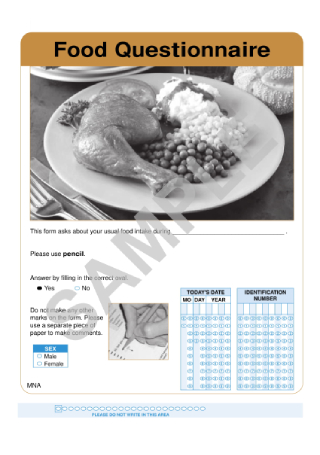
Food Questionnaire
Create a food questionnaire with the help of this sample.
-
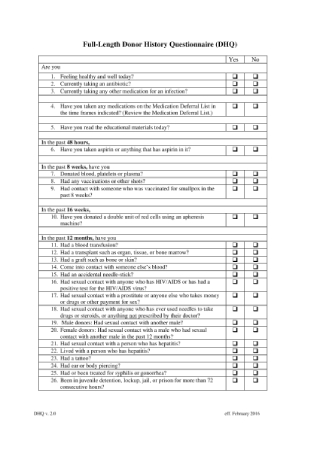
Full-Length Donor History Questionnaire
Screen potential donors on their medical history by having them answer a questionnaire.
-
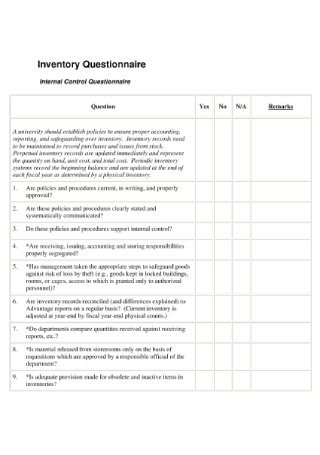
Inventory Questionnaire
Manage your inventory effectively with the help of a questionnaire.
-
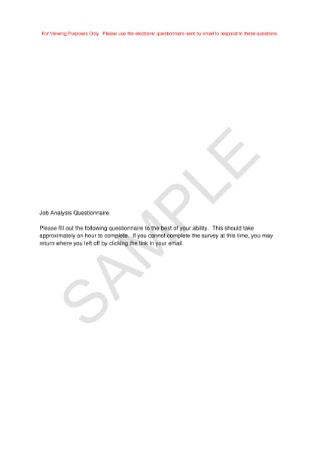
Job Analysis Questionnaire
Have employees fill out this questionnaire to learn about their concerns regarding their job duties.
-
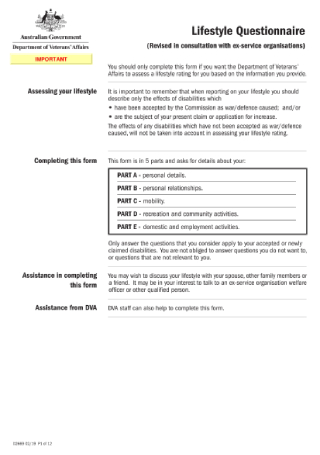
Lifestyle Questionnaire
Get to know your consumer market by using a questionnaire to learn about their interests, opinions, and behaviors.
-
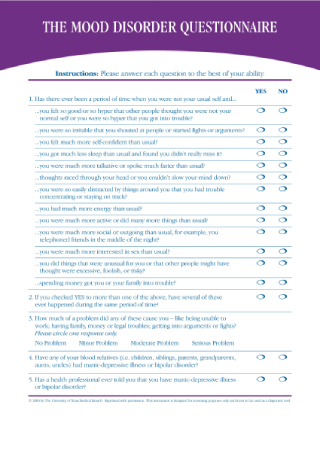
Mood Disorder Questionnaire
Evaluate a person’s emotional state by using a questionnaire for your study.
-
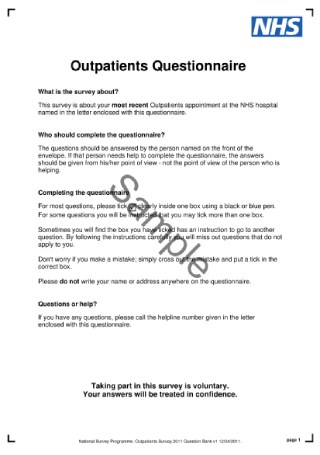
Outpatients Questionnaire
Conduct a thorough assessment on an outpatient with the help of a questionnaire.
-
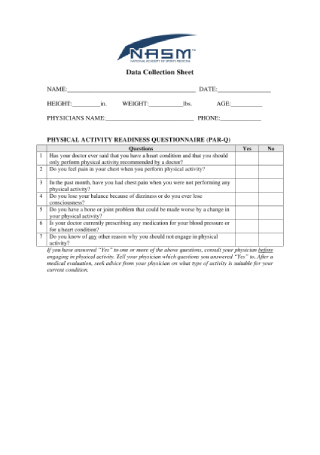
Physical Activity Readiness Questionnaire
Use this questionnaire to assess whether a person is physically capable of carrying out an activity.
-
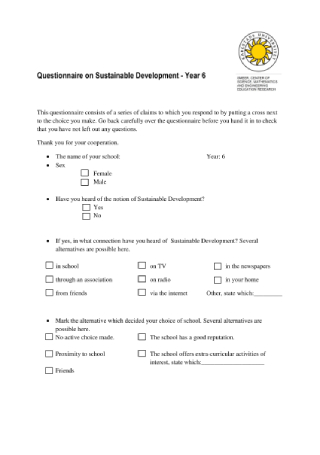
Questionnaire on Sustainable Development
See how you can meet human developmental goals successfully using a questionnaire as your guide.
-
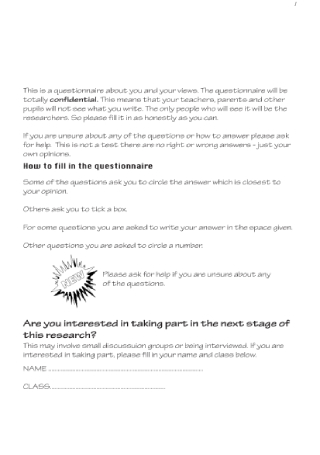
Questionnaire on Youth Values
Administer a survey on today’s youth through a well-written questionnaire.
-
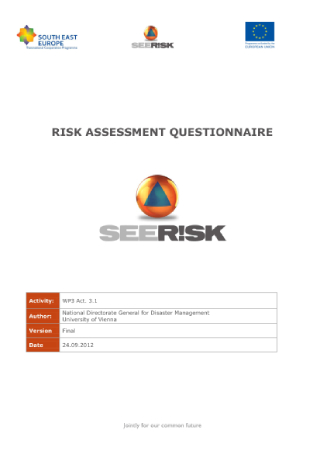
Risk Assessment Questionnaire
Analyze the risks that threaten a project by using a questionnaire as your assessment tool.
-
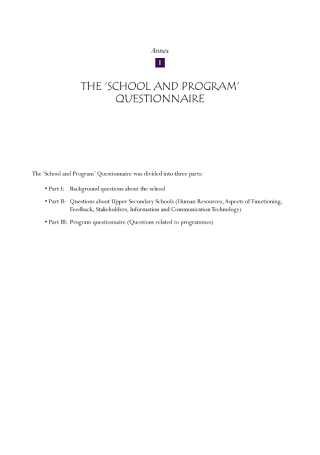
School and Program Questionnaire
Research on the programs offered in schools around the district using a questionnaire.
-
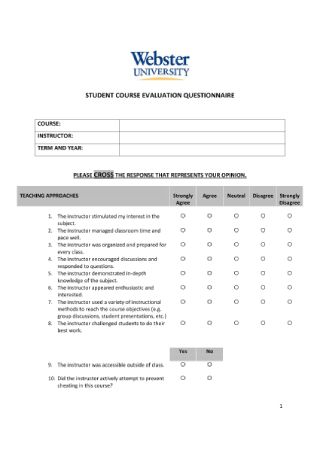
Student Course Evaluation Questionnaire
Perform an evaluation on a student’s course of study with the use of a questionnaire.
-
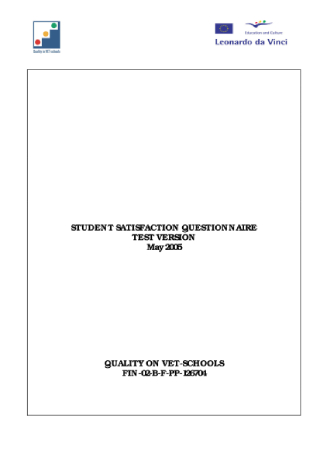
Student Satisfaction Questionnaire
Use a questionnaire to see if your students are satisfied with the offered program.
-
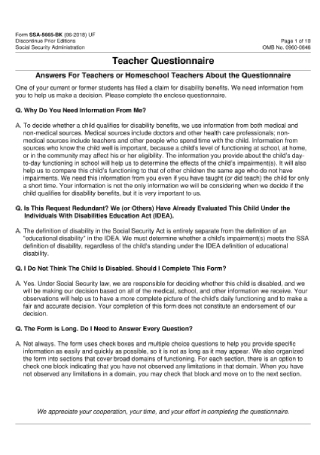
Teacher Questionnaire
Finalize your decision on a matter by using a teacher questionnaire as a reference.
-
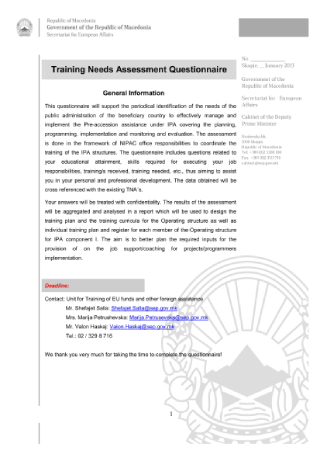
Training Needs Assessment Questionnaire
Uncover the gaps of the current training process by assessing the results of your questionnaire.
FREE Questionnaire s to Download
19+ Professional Questionnaire Samples
Definition of a Questionnaire
Key Elements of a Questionnaire
Definition of a Questionnaire
A questionnaire is a research instrument designed to extract specific information from respondents through a series of questions. Think of it as a written version of an interview. Questionnaires offer a relatively inexpensive way of obtaining large amounts of data from a group of individuals. They are used for the purpose of gathering data, making data comparable and amenable to evaluation, and minimizing the likelihood of a biased outcome. Data is collected a lot quicker because the presence of the researcher is not needed during the time of completion. This is an efficient technique for researchers who have a lot to cover within a limited time frame, especially when one-on-one interviews would seem impractical.
Key Elements of a Questionnaire
The number of questionnaires developed in different fields of research has visibly increased in recent years. That’s because questionnaires are essential for gaining key information on a matter, whether it relates to a business, academic, or creative expertise. The following items refer to the general components found in a well-constructed questionnaire:
At the end of the day, you’re likely to have your own interpretation as to what constitutes a good questionnaire. What matters most is your ability to design a questionnaire that will help accomplish your research objectives and provide complete and accurate information relevant to your study. This allows you to make sound analysis and interpretation based on the findings generated from the survey questionnaire.
